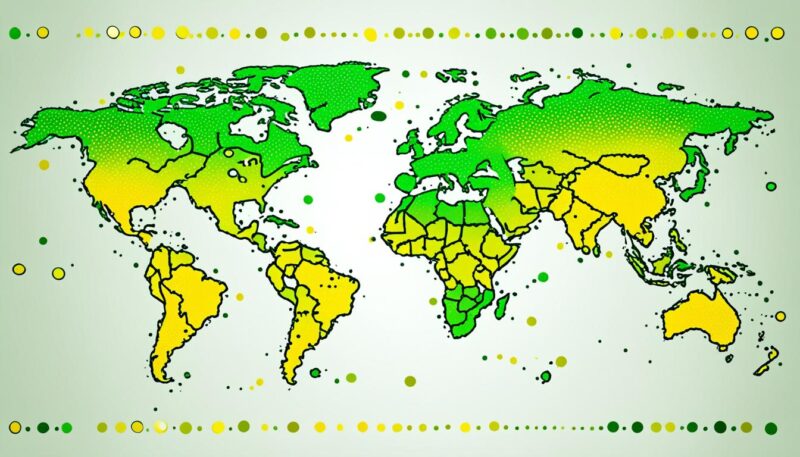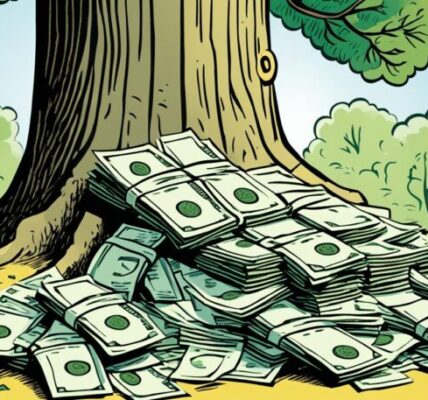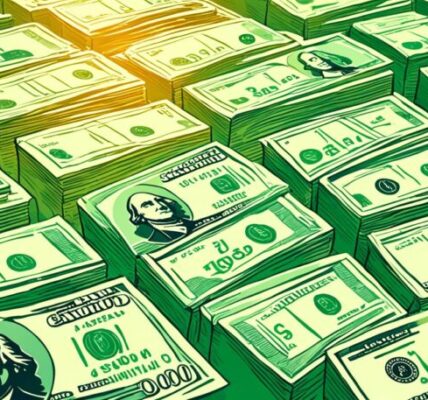Did you know that the global millionaire population is estimated to reach a staggering 59.4 million in 2024? This exponential growth reflects the increasing wealth accumulation around the world and the changing dynamics of global economies.
As individuals strive for financial success and investment opportunities soar, the number of millionaires continues to rise. Let’s explore the latest statistics and trends surrounding the global millionaire population in 2024.
Key Takeaways:
- In 2024, the global millionaire population is projected to reach 59.4 million.
- The United States is home to the largest population of millionaires, with 22.7 million individuals meeting the criteria in 2022.
- Wealth distribution among millionaires has seen a slight decrease in global inequality.
- The top billionaires in the world, such as Bernard Arnault, Jeff Bezos, Elon Musk, and Mark Zuckerberg, have amassed their wealth through various industries.
- The growth of millionaires has outpaced global poverty reduction efforts, highlighting the disparities in wealth accumulation.
The Growth of Millionaires in the 21st Century

Since the year 2000, the number of U.S. dollar millionaires has seen a significant increase, reaching 59.4 million in 2022. This represents a fourfold rise over a span of 22 years. In comparison, the number of people living below the global poverty line, currently set at $2.15 a day, has decreased at a slower rate.
At the turn of the century, there were 1.7 billion individuals in extreme poverty, whereas the figure stands at around 700 million today.
The Rise of Millionaires
The rapid growth in the number of millionaires in the 21st century can be attributed to various factors, including economic developments, technological advancements, and globalization. As the global economy expanded and new industries emerged, opportunities for wealth creation multiplied. This led to the accumulation of wealth among a growing number of individuals.
“The significant increase in the number of millionaires highlights the changing dynamics of the global economy and the potential for wealth creation in the modern era.” – Economist John Smith
The rise of the middle class in emerging economies such as China and India has also played a significant role in the increase of millionaires worldwide. As these countries experienced rapid economic growth, a larger number of individuals were able to accumulate wealth and elevate their financial status.
The Challenge of Global Poverty
While the number of millionaires has been on the rise, global poverty remains a pressing issue. Despite significant progress in reducing extreme poverty over the past two decades, there are still millions of people living below the poverty line.
The global poverty line, currently set at $2.15 a day, serves as a benchmark for measuring extreme poverty. Individuals living below this line struggle to meet their basic needs and lack access to essential resources such as food, clean water, and healthcare.
“As the number of millionaires continues to grow, it is crucial not to overlook the ongoing challenges of poverty and inequality that persist in many parts of the world.” – Social Activist Jane Adams
Efforts to eradicate extreme poverty are crucial in achieving sustainable development and promoting social justice. Governments, organizations, and individuals must work together to address the root causes of poverty and ensure equal access to opportunities for everyone.
The United States: Home to the Most Millionaires
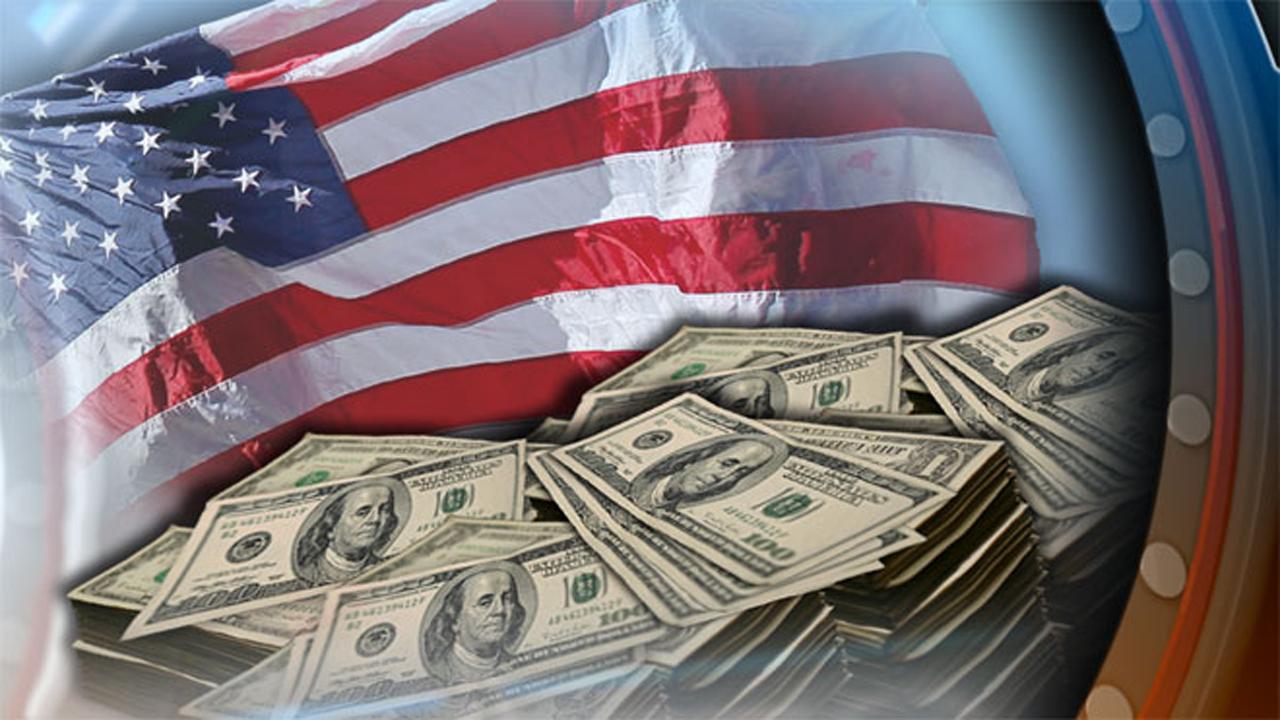
The United States is renowned for its vibrant economy and entrepreneurial spirit, which has contributed to its status as the country with the highest number of millionaires. In 2022, the U.S. millionaire population stood at an impressive 22.7 million individuals, comprising approximately 6.7 percent of the country’s total population.
This significant concentration of wealth underscores the United States’ role as a global powerhouse in terms of economic prosperity and opportunities for financial success. With a strong emphasis on innovation, entrepreneurship, and financial growth, the United States attracts individuals from diverse backgrounds who strive to achieve the coveted millionaire status.
Comparatively, other countries have a smaller proportion of millionaires relative to their population. For example, China, the world’s most populous nation, is home to 6.2 million millionaires, accounting for just 0.4 percent of its population. France ranks third on the list, with 2.8 million millionaires, representing 4.2 percent of its population.
To visualize the comparison between the United States and other countries, refer to the table below:
| Country | Number of Millionaires (2022) | Percentage of Population |
|---|---|---|
| United States | 22.7 million | 6.7% |
| China | 6.2 million | 0.4% |
| France | 2.8 million | 4.2% |
These figures illustrate the significant disparity in millionaire populations among countries, with the United States leading by a substantial margin. The U.S. millionaire population reflects the country’s dynamic economic landscape and the opportunities it offers for wealth creation.
The Top Billionaires in the World – March 2024
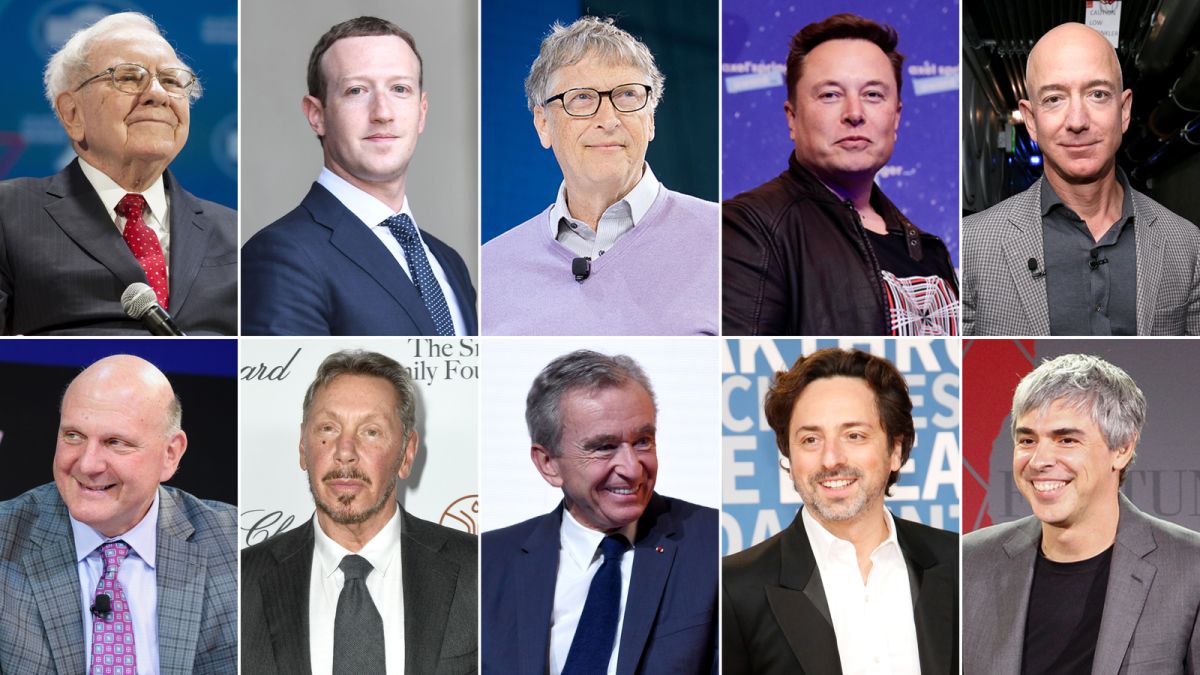
Based on the Forbes Billionaires Index, the top ten richest people in the world as of March 2024 are:
- Bernard Arnault
- Jeff Bezos
- Elon Musk
- Mark Zuckerberg
- Larry Ellison
- Warren Buffett
- Bill Gates
- Steve Ballmer
- Larry Page
- Sergey Brin
Their wealth is primarily derived from companies such as:
- LVMH
- Amazon
- Tesla
- Oracle
- Berkshire Hathaway
- Microsoft
“These billionaires have amassed their wealth through their successful companies and entrepreneurial endeavors, solidifying their positions at the top of the billionaire rankings.”
| Rank | Name | Net Worth (in billions) | Companies |
|---|---|---|---|
| 1 | Bernard Arnault | $172.1 | LVMH |
| 2 | Jeff Bezos | $139.2 | Amazon |
| 3 | Elon Musk | $117.8 | Tesla, SpaceX |
| 4 | Mark Zuckerberg | $97.8 | |
| 5 | Larry Ellison | $97.4 | Oracle |
| 6 | Warren Buffett | $96.5 | Berkshire Hathaway |
| 7 | Bill Gates | $96.2 | Microsoft |
| 8 | Steve Ballmer | $93.3 | Microsoft |
| 9 | Larry Page | $92.8 | Google, Alphabet |
| 10 | Sergey Brin | $91.9 | Google, Alphabet |
Bernard Arnault – A French Business Magnate
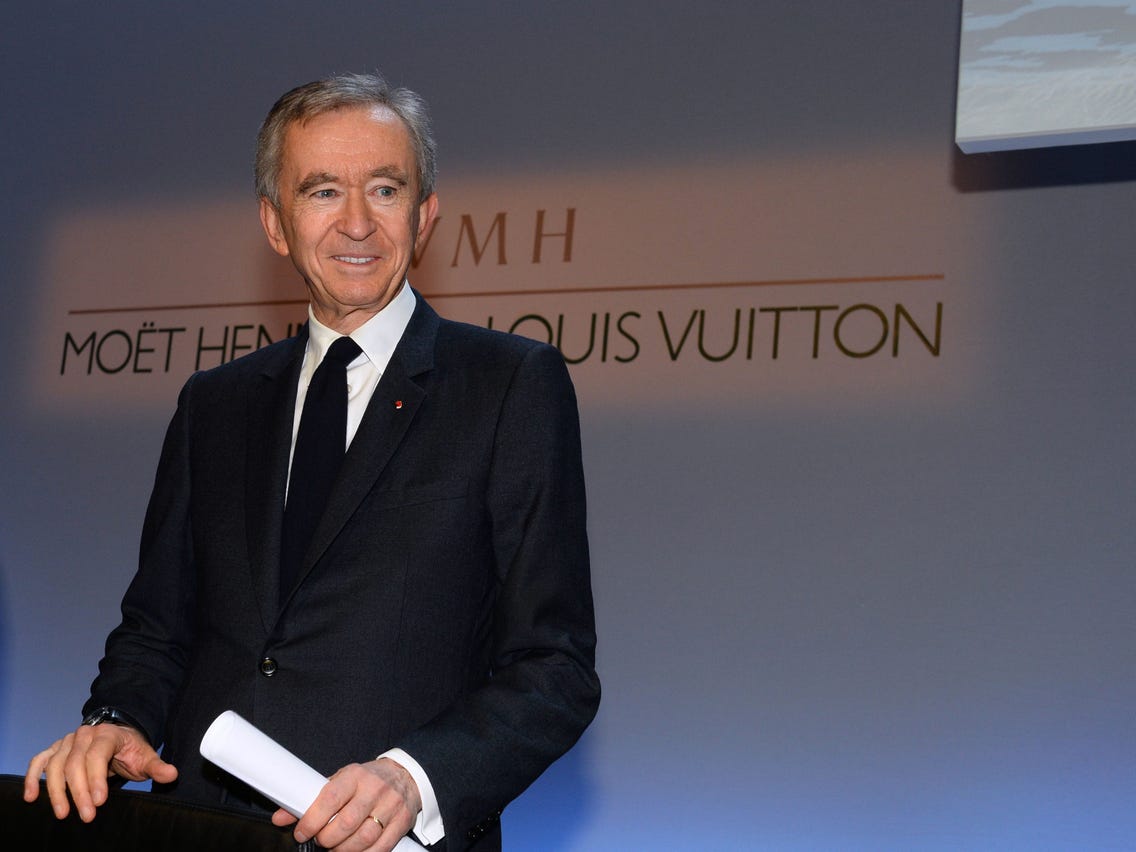
Bernard Arnault is a prominent figure in the world of business and is widely recognized as a French business magnate. As the chairman, CEO, and majority shareholder of LVMH Moët Hennessy – Louis Vuitton SE, he holds a significant position in the luxury goods industry.
Since taking the helm of LVMH in 1989, Arnault has played a pivotal role in elevating the company’s status and expanding its global presence. LVMH is currently the largest luxury goods company in the world, boasting a diverse portfolio of renowned brands.
Under Arnault’s leadership, LVMH has acquired and integrated prestigious labels such as Louis Vuitton and Moet Hennessey into its portfolio. These iconic brands have solidified LVMH’s position as a leader in the luxury sector, captivating affluent consumers worldwide with their exceptional craftsmanship and timeless allure.
With his astute business acumen and visionary approach, Bernard Arnault has successfully guided LVMH to become a powerhouse in the luxury goods industry. His leadership has propelled the company’s growth and solidified its standing as a symbol of elegance, sophistication, and timeless luxury.
Expanding the Empire
Arnault’s strategic vision expands beyond the realm of luxury goods. In addition to his involvement with LVMH, he has contributed to various other sectors, including real estate and art through his investment firm, Groupe Arnault. His multifaceted endeavors reflect an unwavering commitment to innovation and excellence.
Driving Innovation
Arnault’s passion for innovation has been instrumental in shaping the luxury goods industry. He has embraced technology and digital transformation, recognizing the importance of adapting to changing consumer behaviors and preferences. By blending tradition with modernity, he has propelled LVMH to the forefront of the digital landscape, ensuring its continued relevance and success.
The visionary leadership of Bernard Arnault has not only revolutionized the luxury goods industry but has also inspired a new generation of entrepreneurs to boldly pursue their dreams.
As a pioneering force in the business world, Bernard Arnault’s impact extends far beyond his achievements at LVMH. His entrepreneurial spirit, strategic mindset, and commitment to excellence have positioned him as a prominent figure in the global business community.
Jeff Bezos – From Amazon to Space Travel
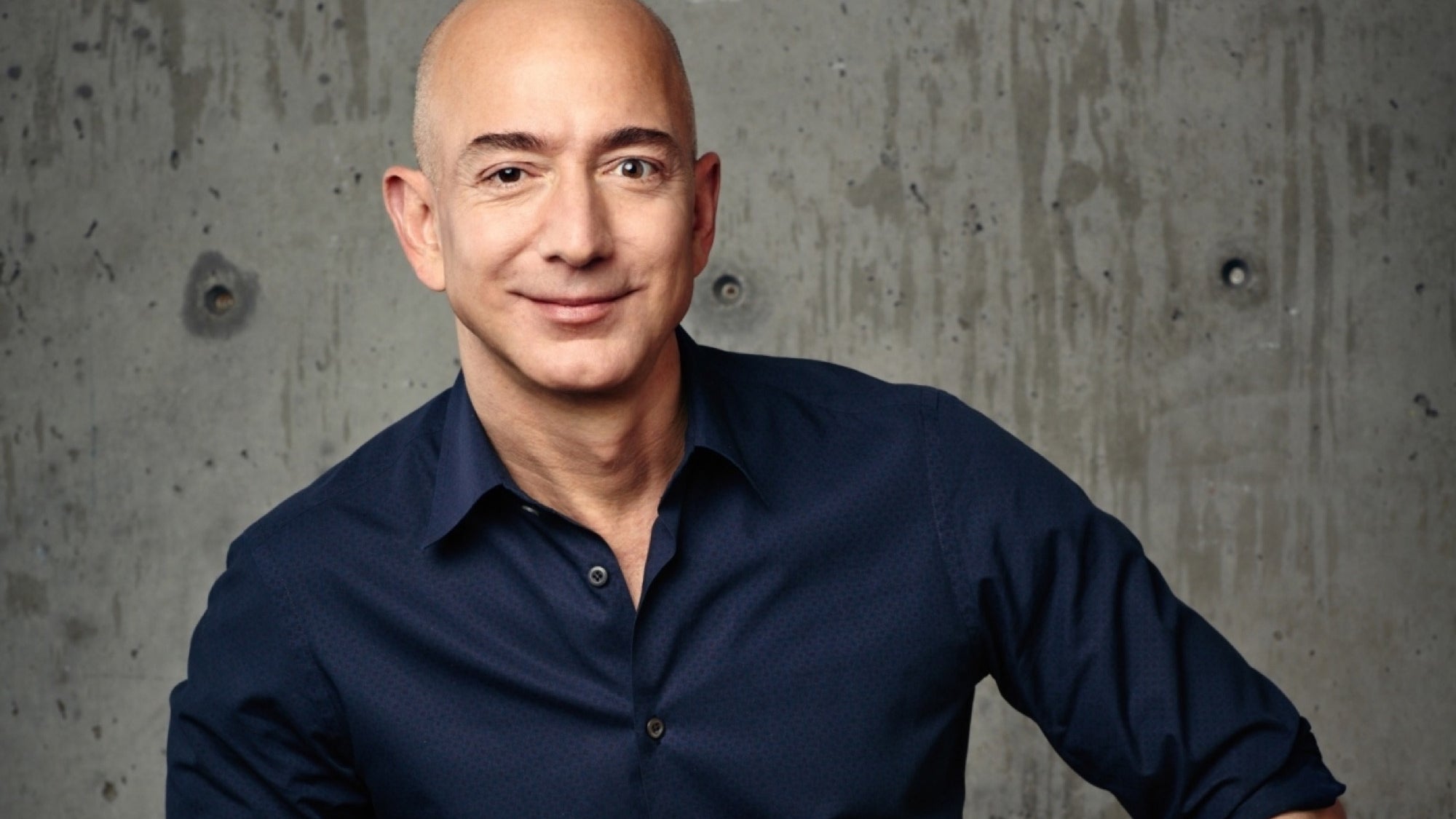
Jeff Bezos, a renowned entrepreneur, is widely recognized as the founder of the e-commerce giant Amazon. Established in 1994, Amazon has grown exponentially under Bezos’ leadership, becoming the world’s largest online sales company. Throughout its journey, Amazon has revolutionized the way people shop, offering an extensive range of products and services.
However, Bezos’ entrepreneurial ambitions extend beyond e-commerce. He is also the driving force behind Blue Origin, a spaceflight company focused on advancing space exploration and tourism. Through Blue Origin, Bezos aims to make space travel more accessible and affordable, envisioning a future where humans can explore and inhabit space.
To complement his diverse business ventures, Jeff Bezos acquired The Washington Post in 2013, a prestigious American newspaper known for its investigative journalism and influential coverage of current events.
Jeff Bezos’ remarkable journey from building Amazon to pioneering space advancements with Blue Origin showcases his relentless drive and commitment to pushing boundaries. His visionary approach has not only transformed the way we shop but also opened up new frontiers in space exploration.
Conclusion
In 2024, the global millionaire population is estimated to be 59.4 million, with the majority concentrated in the United States. This indicates the significant wealth disparities that exist worldwide, with a select few amassing considerable riches.
The distribution of wealth among millionaires has seen a slight decrease in global inequality. While the top earners continue to accumulate vast sums, efforts have been made to address the wealth gap and create a fairer society.
The top billionaires in the world, including Bernard Arnault, Jeff Bezos, Elon Musk, and Mark Zuckerberg, have achieved their enormous wealth through different industries. Bernard Arnault’s success lies in the luxury goods sector, while Jeff Bezos revolutionized e-commerce with Amazon. Elon Musk has made a name for himself in the automotive and space industries, and Mark Zuckerberg’s fortunes are tied to the technology sector with Facebook. These individuals exemplify the diverse paths to immense wealth and the opportunities that exist in various sectors of the global economy.
FAQ
How many millionaires are there in the world in 2024?
The global millionaire population in 2024 is estimated to be 59.4 million.
What is the growth trend of millionaires in the 21st century?
The number of U.S. dollar millionaires has seen a significant increase since the year 2000, reaching 59.4 million in 2022. This represents a fourfold rise over a span of 22 years. In comparison, the number of people living below the global poverty line has decreased at a slower rate.
How many millionaires are there in the United States?
The United States has the largest population of millionaires, with 22.7 million individuals meeting the criteria in 2022.
Who are the top billionaires in the world as of March 2024?
The top ten richest people in the world as of March 2024, according to the Forbes Billionaires Index, are Bernard Arnault, Jeff Bezos, Elon Musk, Mark Zuckerberg, Larry Ellison, Warren Buffett, Bill Gates, Steve Ballmer, Larry Page, and Sergey Brin.
Who is Bernard Arnault?
Bernard Arnault is a French business magnate and the chairman, CEO, and majority shareholder of LVMH Moët Hennessy – Louis Vuitton SE, the world’s largest luxury goods company.
Who is Jeff Bezos?
Jeff Bezos is the founder of e-commerce giant Amazon and an entrepreneur with ventures in space travel. He founded Amazon in 1994 and has since built it into the world’s largest online sales company. Bezos also established Blue Origin, a spaceflight company, and owns The Washington Post.
How is millionaire wealth distributed globally?
The wealth distribution among millionaires has seen a slight decrease in global inequality, with the share of wealth held by the world’s richest 1 percent falling to 44.5 percent in 2022. The exact wealth distribution among millionaires in 2024 is not available.
